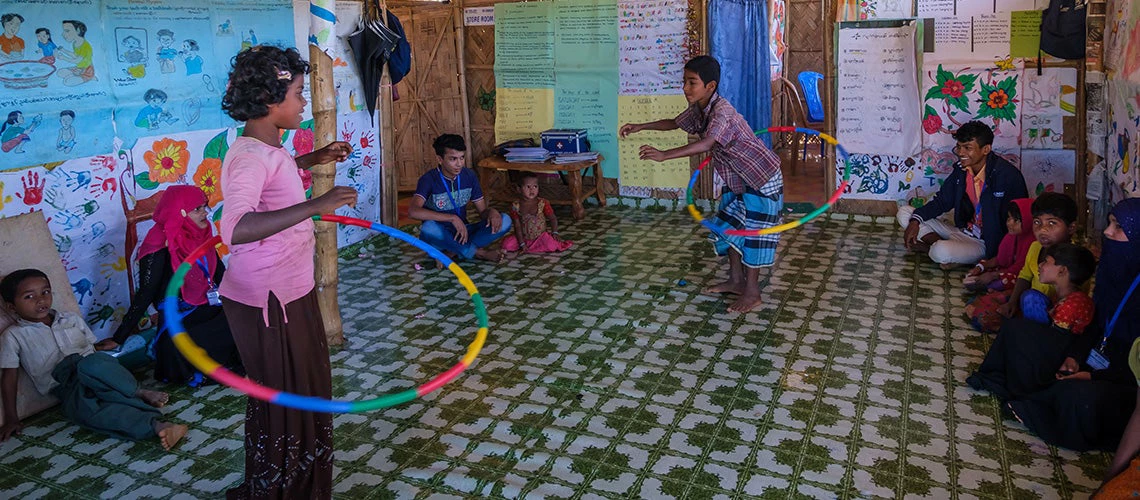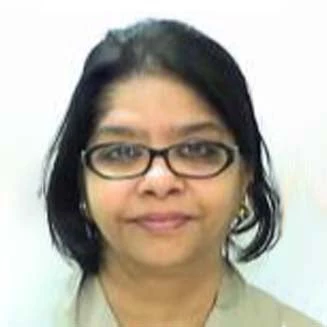 Kuputalong Refugee camp, Cox's Bazaar, Bangladesh. | © shutterstock.com
Kuputalong Refugee camp, Cox's Bazaar, Bangladesh. | © shutterstock.com
More than 100 million people around the world today live in a situation of forced displacement, a historically high number. Supporting forcibly displaced persons (FDPs) and meeting their basic needs, particularly during acute emergencies, is critical , and a shared responsibility for the global community. In addition, as displacement situations worldwide tend to become increasingly prolonged, it is equally vital to ensure longer-term policy responses help build displaced people’s productive capacity and support their socioeconomic integration.
In this blog, we discuss why a broad characterization of the welfare of both FDPs, and host communities is so important to identifying ways countries can advance their development agendas. To do this, we draw on results from a recent data harmonization effort and on key takeaways outlined in a series of new policy briefs.
The Power of Comprehensive Data
The global response to forced displacement demands data-driven policies that are tailored to the unique context of each host country. Today, however, evidence on displacement and response policies comes predominantly from high-income countries and may not translate well to the developing world, where the majority of FDPs live.
To address this gap, the World Bank has supported innovative work to include displaced populations in key household surveys in several low- and middle-income countries. The Bank has also invested in creating a harmonized dataset on refugees and host populations that encompasses surveys from 10 developing countries hosting FDPs during the period 2015–2020.
Why a Broad Characterization of Welfare?
Traditional approaches to understanding welfare, particularly for FDPs, often revolve around measuring outcomes, such as monetary poverty or access to basic needs. However, this approach can overlook the underlying constraints that affect the ability of displaced populations to make choices and reach desired outcomes.
Following Amartya Sen’s seminal work, a broader understanding of welfare is needed that looks at opportunities, diversity in preferences, and empowerment as key factors influencing people's choices.
While outcomes like poverty and calorie intake are often used as markers of FDPs’ wellbeing, they do not, by themselves, adequately capture displaced people’s welfare. This is especially true where legal restrictions introduce significant constraints on displaced people’s mobility and work options, as in refugee camp settings where FDPs’ livelihoods depend largely on humanitarian aid. In such environments, displaced people’s survival needs may be met, but empowerment and opportunities which are crucial for their future — such as job skills and opportunities — may languish.
We illustrate this point by contrasting two settings with very different policy responses to recent FDP inflows: Cox’s Bazar District, Bangladesh, and Uganda.
For displaced Rohingya people in Cox’s Bazar, food consumption and calorie intake are very similar to, or even higher than, those of the Bangladeshi host population in the same district. Yet Rohingya livelihoods are entirely dependent on aid, and restrictions on work and movement fuel this aid dependency.
In contrast, in Uganda, refugees have the right to live outside camps and greater freedom in seeking employment. While poverty is higher among refugees than among Ugandans, on average, some important measures indicate better prospects for integration and a clearer path out of aid dependency in Uganda’s more progressive legal environment. Importantly, the data show that poverty rates and aid dependency among refugees in Uganda fall with time spent in the country, suggesting progressive economic and social integration for many refugees.
A broad understanding of welfare also requires measuring and understanding the circumstances of both FDPs and hosts, and the role of the legal and policy environment. Results from the World Bank’s harmonized database with the recently launched Developing World Refugee and Asylum Policy Dataset (DWRAP) database, show that countries with more liberal refugee policy regimes tend to foster better education and employment prospects for displaced individuals.
This suggests that such policy models boost economic integration. For example, a more liberal policy framework that allows refugees to work and move freely is linked to higher refugee employment rates, particularly among women. Refugee children are more likely to attend school and exhibit better literacy skills when policies support inclusive education.
Improving Lives with a Holistic Policy Perspective
Supporting forcibly displaced populations requires more than just meeting basic needs. Policy approaches should also provide opportunities for economic integration, access to education, and investment in human capital.
These approaches aim to help FDPs recover from the deprivations and traumas that many have suffered; grasp opportunities to learn, work, and live with dignity in their new settings; and contribute to local communities and host-country economies. While evidence remains fragmentary, there are good reasons to think that, in most contexts, policies that nurture opportunities for FDPs may also work to the benefit of hosts.
Systematic data collection across a broad range of indicators is necessary to shape effective policies and interventions; it opens the door to using evidence to guide policy through a better understanding of potential trade-offs and costs of policies for hosts.
The recent review by Brell, Dustmann, and Preston (2020) highlights the value of such data in developed countries to illustrate how much outcomes can vary among refugees across different host countries. Systematic data collection should also be a priority for generating evidence on the impact of inclusion policies on hosts in developing settings.
Related Links:
Event: Welfare Implications of Forced Displacement (8 November 2023)
- Blog: Responding to forced displacement: data-informed policies for both refugees and hosts
- Policy Briefs: Welfare of Displaced Populations
- Report: Displaced During Crisis: Lessons Learned from High-Frequency Phone Surveys and How to Protect the Most Vulnerable




Join the Conversation